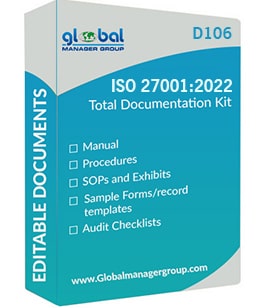Why Every Company Needs an ISO 27001 Internal Auditor

Strong 8k brings an ultra-HD IPTV experience to your living room and your pocket.
When it comes to protecting sensitive data and maintaining customer trust, ISO/IEC 27001 sets the international standard. But achieving certification is only the beginning. The real challenge lies in sustaining, evaluating, and improving your Information Security Management System (ISMS) over time. This is where an ISO 27001 Internal Auditor plays a pivotal role.
An Internal Auditor isn’t just someone who checks compliance boxes. They’re trained professionals with a deep understanding of the ISO 27001 framework — not just in theory, but in how it applies in practical, day-to-day business environments. Their work ensures that your ISMS isn’t a static document, but a living, responsive system aligned with real-world risks and business goals.
Why an ISO 27001 Internal Auditor Matters
A strong ISMS depends on continual evaluation and improvement — and Internal Auditors are at the center of that effort. Here's what makes them essential:
• Independent Evaluation: Unlike team members involved in daily operations, Internal Auditors provide a fresh, objective perspective on how well the ISMS is functioning.
• Driving Continuous Improvement: By identifying gaps, inefficiencies, or misalignments, they help organizations strengthen their controls and adapt to changing risks.
• Preparing for Certification and Surveillance: Internal audits build readiness for third-party assessments, reducing surprises and ensuring ongoing compliance.
• Practical Risk Insight: Internal Auditors offer a hands-on view of whether risk controls are working in reality — not just on paper.
It’s a common misconception that once an organization earns ISO 27001 certification, the heavy lifting is over. But standards evolve, threats shift, and businesses change. Without regular internal audits, even the best-designed ISMS can grow outdated or ineffective.
What Does an ISO 27001 Internal Auditor Actually Do?
The Internal Auditor’s role goes far beyond reviewing documents. They conduct scheduled assessments to examine whether the ISMS is functioning as intended across all departments. This includes:
• Reviewing risk assessments and treatment plans
• Evaluating how effective existing controls are
• Interviewing employees to gauge awareness and practical application
• Verifying whether documented procedures are followed in real life
• Reporting nonconformities and recommending corrective actions
An effective Internal Auditor bridges the gap between the technical requirements of ISO 27001 and the practical realities of business. From IT and HR to procurement and executive leadership, they ensure that information security is a shared, organization-wide responsibility.
Want to understand the day-to-day role of an Internal Auditor in more detail? Find out how Internal Auditors help maintain ISO 27001 compliance.
Risk Management with ISO 27001
Managing risk isn’t just one of the requirements in ISO 27001 — it’s the foundation. The standard is built around understanding, addressing, and staying ahead of information security threats. Internal Auditors play a key role in evaluating how well this risk-centric approach is applied across the organization.
They ensure that risk assessments are accurate, controls are relevant, and that mitigation efforts are being implemented effectively. Their insights help you fine-tune your ISMS to address current realities — not just historic assumptions.
Internal audits aren’t just about compliance checklists — they’re about finding gaps, validating controls, and guiding continual improvement. Curious how this works in practice? Learn more about how internal audits enhancing ISMS risk management can strengthen your organization’s security posture.
Note: IndiBlogHub features both user-submitted and editorial content. We do not verify third-party contributions. Read our Disclaimer and Privacy Policyfor details.







